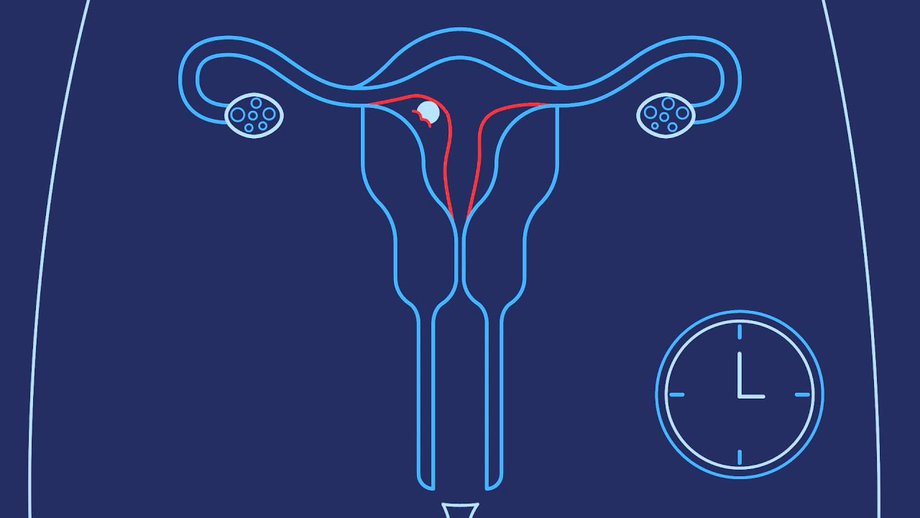How To Navigate Sexual Health During And After Pregnancy?

Are you expecting a baby or have recently become a new parent? Congratulations on this exciting journey! As your body goes through significant changes during pregnancy and after childbirth, it’s natural to have questions and concerns about your sexual health. That’s why we’ve created this article to guide you on how to navigate this aspect of your life during and after pregnancy.
Throughout the article, we will address common topics such as changes in libido, effective communication with your partner, understanding postpartum changes, contraception options postpartum, intimacy and body image issues, self-care for mental health, seeking professional help when needed, and embracing the beautiful journey of parenthood.
By following our practical advice and gaining insights into these important areas of sexual health, you can feel confident in maintaining a fulfilling intimate relationship while navigating the joys and challenges of pregnancy and early parenthood. So let’s dive in together and empower yourself with knowledge that will support your overall well-being during this transformative time.
Key Takeaways
- Open communication with your partner is essential in navigating changes in libido and sexual health during and after pregnancy.
- Prioritize self-care and seek support from loved ones or professionals to manage postpartum changes and recovery.
- Discuss contraception options with your healthcare provider, considering factors such as breastfeeding and medical history.
- Embrace the journey of pregnancy and parenthood, prioritize self-love, and celebrate the strength and resilience of your body.
Changes in Libido During Pregnancy
During pregnancy, it’s common for women to experience changes in libido due to hormonal fluctuations and physical discomfort. These changes can impact their sexual desire and intimacy levels. You may find that your sex drive either increases or decreases during this time, as every woman is different.
Some women may feel more sexually aroused due to increased blood flow and sensitivity in the genital area. On the other hand, others may experience a decrease in libido due to fatigue, nausea, or body image concerns.
It’s important to communicate with your partner about these changes and find alternative ways of maintaining intimacy if intercourse becomes uncomfortable. Remember that it’s normal for your sexual desires to fluctuate during pregnancy, and open communication can help you navigate these changes together.
Communicating with Your Partner
When it comes to maintaining a strong connection with your partner, effective communication is key. During and after pregnancy, it’s important to openly discuss your sexual health needs and concerns. Your partner may also have questions or worries, so make sure to create a safe space for open dialogue. Remember that both of you are experiencing changes in your bodies and emotions, so patience and understanding are crucial. To help facilitate these conversations, consider using a 2 column and 4 row table like the one below:
| Concerns | Suggestions |
|---|---|
| Lack of desire | Explore new ways to connect emotionally |
| Physical discomfort | Experiment with different positions or techniques |
| Anxiety about body changes | Share affirmations and compliments |
By utilizing this table as a starting point for discussion, you can navigate sexual health together during this transformative time.
Understanding Postpartum Changes
After giving birth, you’ll experience physical changes as your body recovers from the process. These changes may include healing from tears or incisions, vaginal soreness, and breast engorgement.
You might also go through emotional adjustments and mood swings due to hormonal fluctuations during this time.
Additionally, managing fatigue and sleep deprivation can be challenging as you adjust to the demands of caring for a newborn.
Physical recovery after childbirth
The journey of physical recovery after childbirth can be both challenging and rewarding. Your body has gone through significant changes during pregnancy and delivery, and it’ll take time to heal.
The first few weeks after giving birth are crucial for rest and healing. You may experience vaginal soreness, perineal tears, or a cesarean incision that requires proper care. It’s important to listen to your body’s cues and not push yourself too hard.
Gentle exercises like walking or pelvic floor exercises can help improve muscle tone and promote healing. Maintaining a healthy diet, staying hydrated, and getting enough sleep are also essential for your recovery.
Remember to reach out to your healthcare provider if you have any concerns or questions about your physical recovery process.
Emotional adjustments and mood swings
Take the time to acknowledge and understand your emotional adjustments and mood swings, as they’re a normal part of the postpartum experience.
It’s completely normal to feel a wide range of emotions during this time, including joy, sadness, anxiety, and even irritability. Remember that hormonal changes, lack of sleep, and adjusting to your new role as a parent can all contribute to these mood swings.
Here are some tips to help you navigate through this emotional journey:
- Seek support from your partner or loved ones who can provide understanding and comfort.
- Take care of yourself by eating nutritious meals, getting enough rest, and engaging in activities that bring you joy.
- Consider joining a support group or talking to a therapist who specializes in postpartum emotional well-being.
Remember that it’s okay to ask for help when needed and be patient with yourself as you adjust to the emotional rollercoaster of motherhood.
Managing fatigue and sleep deprivation
Now that you have gained some insight into emotional adjustments and mood swings during pregnancy, it’s time to address another important aspect of navigating sexual health during and after this transformative period: managing fatigue and sleep deprivation. Pregnancy can bring about intense exhaustion due to hormonal changes, physical discomfort, and the demands of growing a baby. Sleep disturbances are common throughout pregnancy, often caused by frequent urination, discomfort, or anxiety. After childbirth, sleep deprivation becomes even more prevalent as you adjust to the needs of your newborn. It is crucial to prioritize self-care and find strategies that promote restful sleep, such as establishing a bedtime routine or seeking support from your partner or loved ones. Remember, taking care of yourself is essential for both your overall well-being and your sexual health.
| Challenges | Strategies | Benefits |
|---|---|---|
| Hormonal changes | Establish a bedtime routine | Improved mental well-being |
| Physical discomfort | Seek support from loved ones | Increased energy levels |
| Demands of growing a baby | Practice relaxation techniques | Enhanced intimacy with partner |
Contraception Options Postpartum
When it comes to contraception options postpartum, it’s important to have a conversation with your healthcare provider. They can help guide you in choosing the best method based on your individual needs and health history.
Some options include hormonal methods like birth control pills or injections, as well as non-hormonal methods such as condoms or copper IUDs.
If you’re breastfeeding, there are additional considerations to take into account when selecting a contraceptive method.
Discussing contraception with your healthcare provider
Explore the various contraceptive options available with your healthcare provider to ensure you find the best method that suits your needs during and after pregnancy. It’s important to have an open and honest conversation with your healthcare provider about your sexual health goals and preferences.
Here are three key points to discuss:
- Your medical history: Share any relevant information regarding past pregnancies, medical conditions, or allergies that might impact your choice of contraception.
- Effectiveness: Ask about the effectiveness rates of different contraceptive methods, as well as their advantages and disadvantages. This’ll help you make an informed decision based on your individual circumstances.
- Side effects: Inquire about potential side effects associated with each contraceptive option. Understanding these risks will allow you to choose a method that aligns with your comfort level.
Remember, communication is key in finding the right contraception method for you, so don’t hesitate to ask questions or voice any concerns during this discussion with your healthcare provider.
Hormonal and non-hormonal methods
Finding the right contraceptive method involves discussing hormonal and non-hormonal options with your healthcare provider. Hormonal methods, such as birth control pills or patches, work by releasing hormones that prevent pregnancy. They are highly effective when used correctly but may have side effects like mood changes or weight gain. On the other hand, non-hormonal methods, like condoms or diaphragms, do not use hormones and are usually safe for breastfeeding mothers. They provide protection against both pregnancy and sexually transmitted infections (STIs). To help you understand the differences between these methods, here’s a handy table:
| Hormonal Methods | Non-Hormonal Methods |
|---|---|
| Birth control pills or patches | Condoms |
| Injectable contraceptives | Diaphragms |
| Intrauterine devices (IUDs) | Copper IUDs |
Remember to discuss your preferences and any health concerns with your healthcare provider to find the best contraceptive method for you.
Breastfeeding considerations
Now that you’ve learned about hormonal and non-hormonal methods for managing your sexual health during and after pregnancy, let’s discuss the important considerations when it comes to breastfeeding. Breastfeeding can impact your sexual health due to hormonal changes in your body. Here are a few things to keep in mind:
- Breastfeeding can lead to vaginal dryness, so using lubrication may be helpful.
- You might experience reduced libido due to fatigue or hormone fluctuations.
- It’s essential to communicate with your partner about any concerns or changes in your sexual desires.
Remember that everyone’s experience is different, and it’s normal for things to change.
Taking care of yourself during this time includes paying attention to your sexual well-being. Understanding these considerations will help you navigate this aspect of postpartum life more confidently.
Intimacy and Body Image
During and after pregnancy, many women may experience changes in their body image that can affect their sense of intimacy and connection with their partner. It’s common for women to feel self-conscious about their post-pregnancy bodies, as they may have gained weight or developed stretch marks. These physical changes can lead to feelings of insecurity and a decrease in confidence when it comes to being intimate with their partner.
It’s important to remember that these changes are normal and temporary, and that your partner loves you for who you are. Communicating openly with your partner about your insecurities and concerns can help foster understanding and support. Additionally, taking care of yourself by engaging in activities that make you feel confident and practicing self-love can also boost your body image and enhance intimacy with your partner.
Self-Care and Mental Health
Taking time for yourself and prioritizing your mental health is crucial in maintaining a strong and fulfilling connection with your partner. Pregnancy and postpartum can be challenging, both physically and emotionally, so it’s important to practice self-care.
Here are three ways you can prioritize your mental well-being:
- Find support: Reach out to friends, family, or join a support group to share experiences and receive emotional support. Connecting with others who understand what you’re going through can be incredibly helpful.
- Take breaks: It’s okay to take some time off from parenting duties and focus on yourself. Whether it’s going for a walk alone, indulging in a hobby, or getting pampered, make sure to schedule regular moments of relaxation.
- Communicate openly: Share your feelings and concerns with your partner. Honest communication fosters understanding and strengthens the bond between you two.
Remember that taking care of yourself is not selfish but necessary for your overall well-being during this significant life transition.
Seeking Professional Help
If you’re experiencing any concerns or complications related to your sexual health during or after pregnancy, it’s important to consult a healthcare provider. They can provide guidance and support tailored to your specific needs.
Accessing specialized sexual health services can also be beneficial in addressing any unique or complex issues that may arise. Remember, seeking professional help is essential for ensuring the best possible care for yourself and your baby.
When to consult a healthcare provider
It’s important to prioritize your sexual health and reach out to a healthcare provider for guidance, ensuring the well-being of both you and your baby. During pregnancy, it’s recommended to consult a healthcare professional if you experience any concerns or discomfort related to your sexual health. This includes symptoms such as pain during intercourse, vaginal bleeding, unusual discharge, or any signs of infection.
It’s also crucial to seek medical advice if you have a history of complicated pregnancies or preterm labor. After giving birth, it’s common for women to have questions about when it’s safe to resume sexual activity. Healthcare providers can provide personalized guidance based on your individual circumstances and offer recommendations on contraception methods if needed.
Remember that open communication with your healthcare provider is key in navigating your sexual health journey during and after pregnancy.
Accessing specialized sexual health services
Seeking advice from a healthcare provider who specializes in reproductive health can be beneficial for addressing any specific concerns or questions regarding your sexual well-being during and after pregnancy. These specialized professionals are equipped with the knowledge and expertise to guide you through this unique journey. Here’s why accessing their services is important:
- Expertise: Specialized healthcare providers have extensive training and experience in dealing with sexual health issues during and after pregnancy.
- Tailored guidance: They can provide personalized advice based on your individual needs, taking into consideration factors such as medical history, physical changes, and emotional well-being.
- Comprehensive care: These providers offer a wide range of services, including contraception counseling, addressing pain or discomfort during intercourse, managing hormonal imbalances, and providing support for postpartum depression or anxiety.
- Referrals: If further specialized care is required, they can refer you to other professionals who specialize in areas like pelvic floor therapy or lactation support.
Don’t hesitate to reach out to these experts for the support you need to navigate your sexual health during and after pregnancy.
Addressing specific concerns or complications
Addressing any specific concerns or complications that may arise can greatly enhance your overall well-being and ensure a smoother journey throughout this unique phase of your life. One common concern during and after pregnancy is the changes in sexual desire and function. Hormonal shifts, fatigue, and physical discomfort can all contribute to a decrease in libido. It’s important to communicate openly with your partner about these changes and explore alternative ways to maintain intimacy. Additionally, certain complications such as vaginal dryness or pain during intercourse may require medical attention. Don’t hesitate to reach out to a healthcare provider who specializes in sexual health for guidance and treatment options.
| Concern/Complication | Possible Solutions | Tips for Coping |
|---|---|---|
| Decreased libido | Explore alternative ways to maintain intimacy | Communicate openly with your partner about these changes |
| Vaginal dryness | Use lubricants during intercourse | Seek medical attention if it persists |
| Pain during intercourse | Try different positions or techniques | Practice relaxation techniques beforehand |
Remember, each person’s experience is unique, so it’s essential to prioritize open communication, self-care, and seeking professional guidance when needed.
Embracing the Journey
Embrace the journey of pregnancy and parenthood by celebrating your body and all its amazing abilities.
Connect with other parents who understand what you’re going through, providing support and a sense of community during this transformative experience.
Embrace the changes that come with becoming a parent, knowing that it’s a beautiful and life-changing adventure that’ll shape you in ways you never imagined.
Celebrating your body and its abilities
Celebrate the incredible abilities of your body during and after pregnancy. Your body’s capable of creating and nurturing life, which is truly remarkable.
During pregnancy, your body undergoes numerous changes to accommodate the growth of your baby. It expands, stretches, and adapts to provide a safe environment for your little one.
After giving birth, your body continues to amaze as it heals and recovers. Take time to appreciate the strength and resilience of your body during this journey. Embrace the changes that have occurred; they’re a testament to the miracle of life.
Celebrate yourself by treating your body with love and care. Engage in activities that make you feel good and help you reconnect with your sensuality.
Remember, you’re beautiful inside and out, and you deserve to celebrate every aspect of yourself.
Connecting with other parents for support
Connect with fellow parents who understand the joys and challenges of raising a child, creating a supportive network that can offer guidance, camaraderie, and shared experiences.
Connecting with other parents during and after pregnancy is essential for your emotional well-being and can provide valuable insights into navigating sexual health.
Join local parenting groups or online communities where you can openly discuss your concerns, ask questions, and receive support from those who’ve been through similar experiences.
These connections can help normalize any feelings of uncertainty or anxiety you may have about your changing body and sexual desires.
Hearing others’ stories and advice can be comforting and empowering as you navigate this new chapter in your life.
Remember, you’re not alone in this journey – reach out to other parents who’re eager to share their wisdom and support you every step of the way.
Embracing the transformative experience of parenthood
Now that you’ve connected with other parents for support, it’s time to embrace the transformative experience of parenthood. Becoming a parent is a journey like no other, filled with joy, challenges, and personal growth. It’s important to acknowledge and embrace the changes that come with this new chapter in your life.
From the moment you hold your baby in your arms, you’ll realize that everything has changed – your priorities, your perspective, and even your identity. Embrace this transformation by:
- Embracing self-care: Prioritize taking care of yourself physically and emotionally.
- Celebrating small victories: Acknowledge and appreciate even the smallest milestones.
- Finding gratitude: Focus on what you’re grateful for each day.
- Seeking support: Lean on loved ones or join parenting groups to navigate challenges together.
- Trusting yourself: Have confidence in your instincts as a parent.
Remember, parenthood is an incredible journey of growth and love. Embrace it wholeheartedly!
Frequently Asked Questions
How can I maintain a healthy sex life during pregnancy?
Maintain a healthy sex life during pregnancy by communicating openly with your partner about desires and concerns, exploring different positions that are comfortable, and seeking advice from healthcare professionals for any specific concerns or complications.
What are some common challenges couples face when communicating about sexual health during and after pregnancy?
Some common challenges couples face when discussing sexual health during and after pregnancy include changes in libido, physical discomfort, emotional adjustments, and lack of communication. It’s important to be open, understanding, and seek professional guidance if needed.
Are there any natural remedies or treatments for postpartum changes in libido?
There are natural remedies and treatments available for postpartum changes in libido. Some options include incorporating aphrodisiac foods, practicing relaxation techniques, and trying herbal supplements like maca or tribulus terrestris.
What are some commonly overlooked contraception options for postpartum women?
Some commonly overlooked contraception options for postpartum women include the hormonal IUD, the mini-pill, and barrier methods like diaphragms or condoms. It’s important to consult with your healthcare provider to find the best option for you.
How can I improve my body image and feel more confident in my postpartum body?
To improve your body image and feel more confident in your postpartum body, focus on self-care, surround yourself with positive influences, practice self-acceptance and gratitude, engage in physical activities you enjoy, and seek support from loved ones or professionals if needed.









